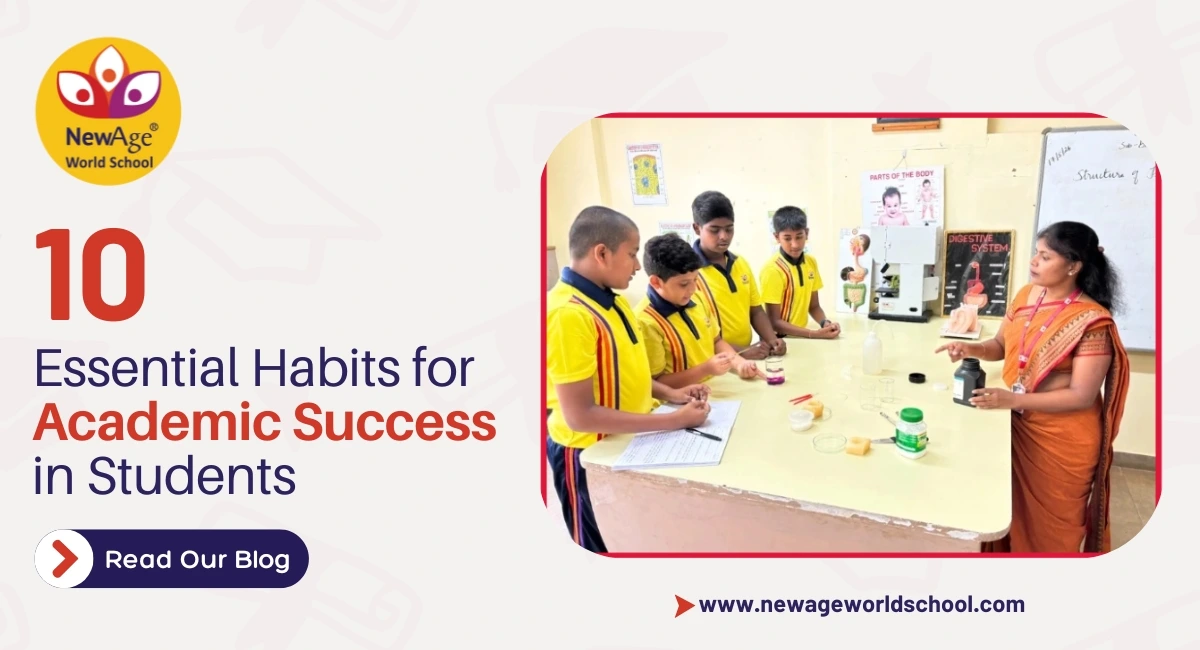The Key to Academic Success: How to Study Effectively

Table of content
Introduction
- Find a Quiet and Comfortable Study Space
- Make a Study Schedule
- Use Active Learning Techniques
- Take Breaks
- Study for Yourself
Conclusion
FAQ
Introduction
Stop spending hours and hours studying without getting results! It's time to study effectively. No more wasting time. Let's learn how to make the most of your study sessions. Whether you are an experienced student or just beginning, mastering effective study habits is the key to reaching your full potential.
Here are five simple and powerful tips for academic success:
1. Find a Quiet and Comfortable Study Space
Step one, find a quiet and comfortable study space. This can be a library, a study room, or even your bedroom. But don't study on your bed; that will make you sleepy. Make sure your space is well-lit and free from distractions: no noise, no social media, no TV, no phone. A distraction-free study environment is crucial for maintaining focus and productivity.
Having a dedicated space for studying can make a world of difference. It's like having a special zone where your brain knows it's time to get serious. Plus, keeping all your study materials organized in one place is easier. So, set up your perfect study spot and watch your productivity soar!
2.Make a Study Schedule
Step two, make a study schedule. Focus, organize, and control your time. This will make studying manageable and not seem like the worst thing on the planet. A structured study schedule helps you allocate specific time slots for each subject or topic, ensuring you stay on track and minimize procrastination.
Check out our blog on the Pomodoro technique, a very efficient way to plan and break down your study time into manageable chunks, and how to set specific goals for each study session. This technique is a lifesaver for time management for students, helping them balance study and leisure effectively. You can read more about how to prepare for exams with a structured schedule in our Top Seven Tips to Prepare for ICSE Class Ten Board Exam article
3.Use Active Learning Techniques
Step three: Use active learning methods. This depends on what type of learner you are. Using active learning techniques means engaging with the material you are studying rather than passively reading or listening. Some effective techniques include taking notes, writing down key points, summarizing what you have learned in your own words, creating flashcards to memorize vocabulary, formulas, or concepts, and teaching others.
Teach the material to a friend or family member to reinforce your understanding. These methods are great for long-term retention strategies and ensure you deeply understand the material.
4.Take Breaks
Step four: take breaks. If you're using the Pomodoro technique, you'll already plan for that in your schedule. But if not, remember it's important to give your brain a break now and then to prevent burnout. Take short breaks between study sessions and longer breaks after a few hours of studying. And this time, unwind your mind and reward yourself.
Listen to music, take a walk, watch a show, do your thing. Breaks are essential for study breaks and productivity. Taking breaks might sound counterintuitive, but trust me, your brain will thank you. It's like giving your brain a mini-vacation so it comes back refreshed and ready to tackle more information.
So, please don't feel guilty about taking that 15-minute break; it's part of the plan!
5.Study for Yourself
Step five: study for you. Stop thinking of studying as an annoying task you must get out of the way. Think about something other than studying just for the exams and passing grades. Approach it in a positive light and remember that the more you know, the more successful you will be in this field when you're actually working.
And yes, sometimes there are courses or topics you'll dislike, but you'll never know when you might need this information at some point in your life. And it's always better to be overprepared than underprepared. This mindset can transform your study sessions into opportunities for growth and discovery.
For more tips on becoming a successful student, check out our Top Eight Powerful Habits of Successful Students article.
Conclusion
Mastering the art of effective studying is a journey, but one that is well worth the effort. By implementing these ten powerful tips, you can unlock your full academic potential and achieve remarkable success. Remember, consistency, discipline, and a holistic approach to self-care are the keys to unlocking your learning prowess.
By integrating these study tips into your routine, you can achieve academic success and develop habits that will benefit you throughout your life. For more insights on how schools help develop time management skills, please read our article on The Vital Role of Schools in Developing Time Management Skills in Children.




















Leave a Reply
Your email address will not be published. Required fields are marked *
Comments
No comments available